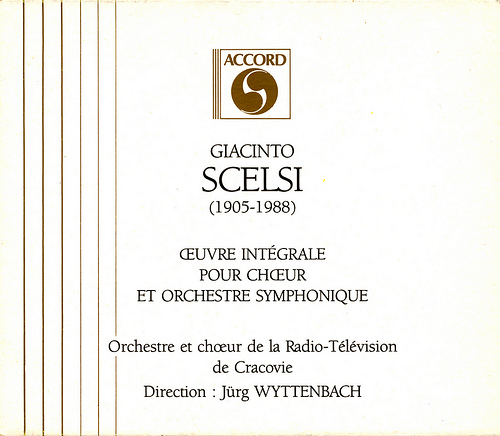Giacinto Scelsi is fairly well known in contemporary music circles – but within that world he’s quite eccentric and individualistic, and recognition came very late to him. He’s someone who you can’t really tie to any of the confines of serial music or 12-tone music, but he’s influenced a lot of people. He was not a minimalist at all, but he worked with very minimal means to create these very texturally expressive and enormously interesting pieces. I’m always attracted to artists that use simple means and simple material to create something deceptively complex.
Complex seems right – Scelsi was an Italian composer, but he also wrote Surrealist poetry in French.
That’s right. I’m not an expert in his music or in his life or history, but when I first heard it there was something in the way that he used the orchestra texturally. A lot of his works share similar qualities – ‘Uaxucutum’ stands out for its scale and the lower register and weird percussion instruments. He was also very interested in mysticism, and there’s a layer of that kind of binds his work and this one is particularly representative of that.
He found a sound and mined that vein for the rest of his career – but it’s a very rich vein. Unlike a lot of serial music, a lot of contemporary composition, it’s not difficult to listen to, you know? ‘Uaxucutum’ is by no means easy listening, but unlike a lot of contemporary composition – which is meant to be appreciated for its methods, for its theory, rather than the results – it’s music that draws you in and is genuinely absorbing. It’s not mathematics, you know?



